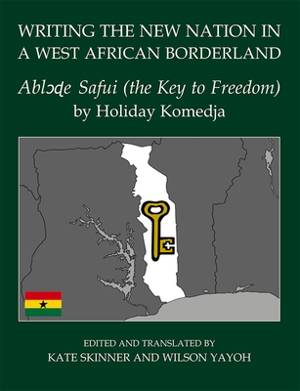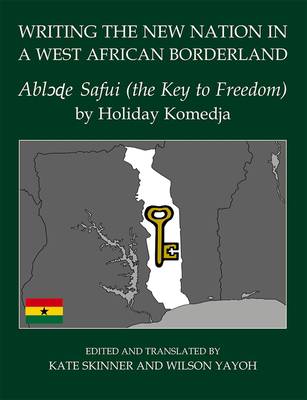
- Afhalen na 1 uur in een winkel met voorraad
- Gratis thuislevering in België vanaf € 30
- Ruim aanbod met 7 miljoen producten
- Afhalen na 1 uur in een winkel met voorraad
- Gratis thuislevering in België vanaf € 30
- Ruim aanbod met 7 miljoen producten
Zoeken
Writing the New Nation in a West African Borderland
Ablɔɖe Safui (the Key to Freedom) by Holiday Komedja
Wilson Yayoh
€ 97,95
+ 195 punten
Omschrijving
This book rethinks the history of decolonisation and new nationhood in the Ghana-Togo borderlands, and speaks to an increasingly urgent debate on the production of knowledge about Africa. It does this through the close reading, translation and analysis of a unique primary source - a newspaper entitled Ablɔɖe(meaning 'the Key to Freedom'). Ablɔɖe was initiated and sustained by a shoemaker named Holiday V. K. Komedja, and written almost entirely in his mother-tongue, Eʋe. Whilst many studies of nationalism have highlighted the importance of anti-colonial newspapers, this volume is unique - in its intensive focus on a single African-language newspaper, in providing translations of entire issues, and in following the story of decolonisation into the era of new nationhood. The manner in which Komedja recounted and explained political events challenges existing scholarly accounts of the rise and fall of Togo's first independent government, and of ethnic nationalisms and local loyalties within new nation-states. In re-reading the history of the Ghana-Togo borderlands through the pages of Ablɔɖe, this volume demonstrates that intensive inter-disciplinary engagement with specific African-language texts is indispensable to the meaningful study of Africa and Africans in global history.
Specificaties
Betrokkenen
- Auteur(s):
- Uitgeverij:
Inhoud
- Aantal bladzijden:
- 352
- Taal:
- Engels
- Reeks:
Eigenschappen
- Productcode (EAN):
- 9780197266526
- Verschijningsdatum:
- 28/01/2020
- Uitvoering:
- Hardcover
- Formaat:
- Genaaid
- Afmetingen:
- 185 mm x 249 mm
- Gewicht:
- 861 g

Alleen bij Standaard Boekhandel
+ 195 punten op je klantenkaart van Standaard Boekhandel
Beoordelingen
We publiceren alleen reviews die voldoen aan de voorwaarden voor reviews. Bekijk onze voorwaarden voor reviews.











